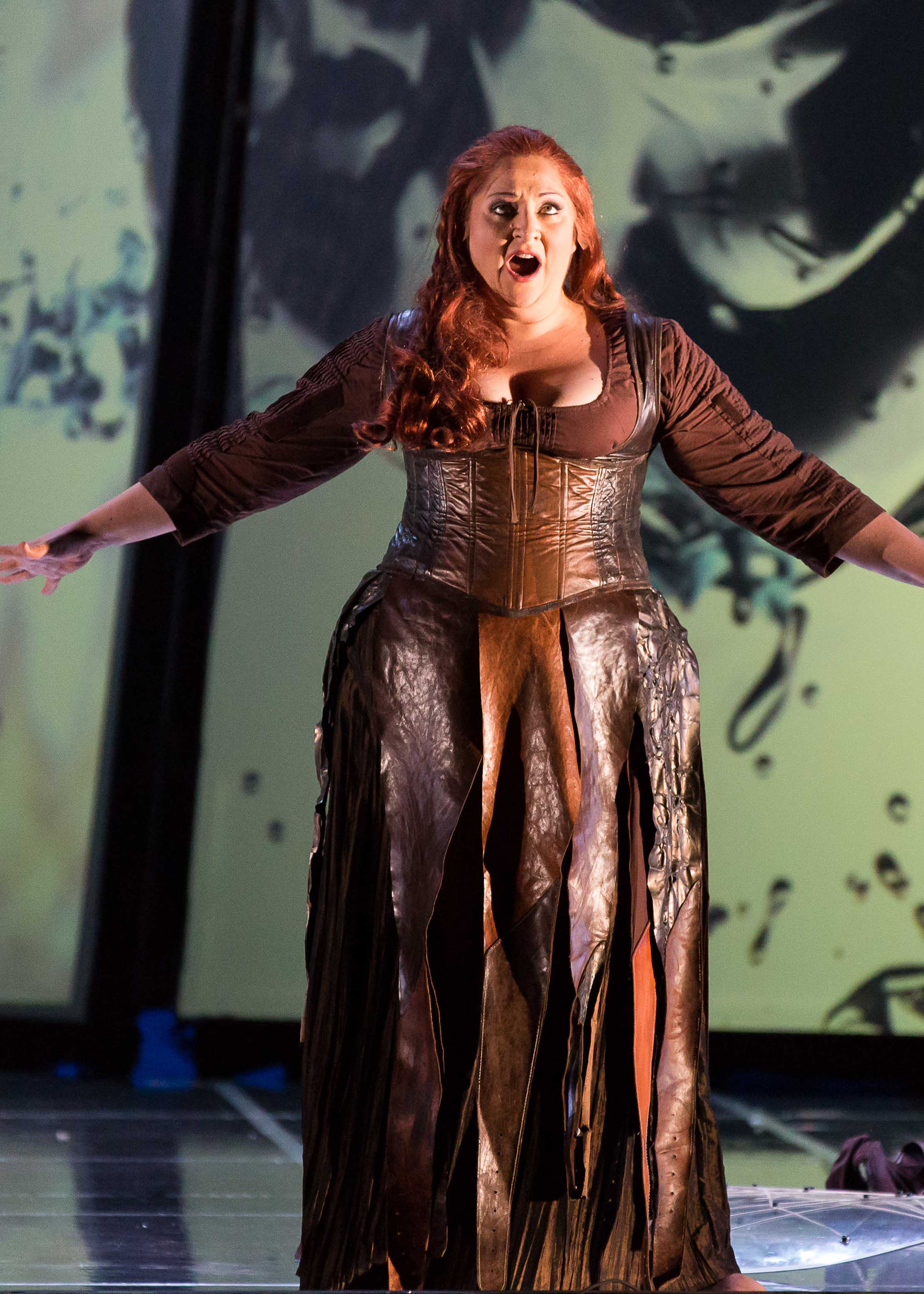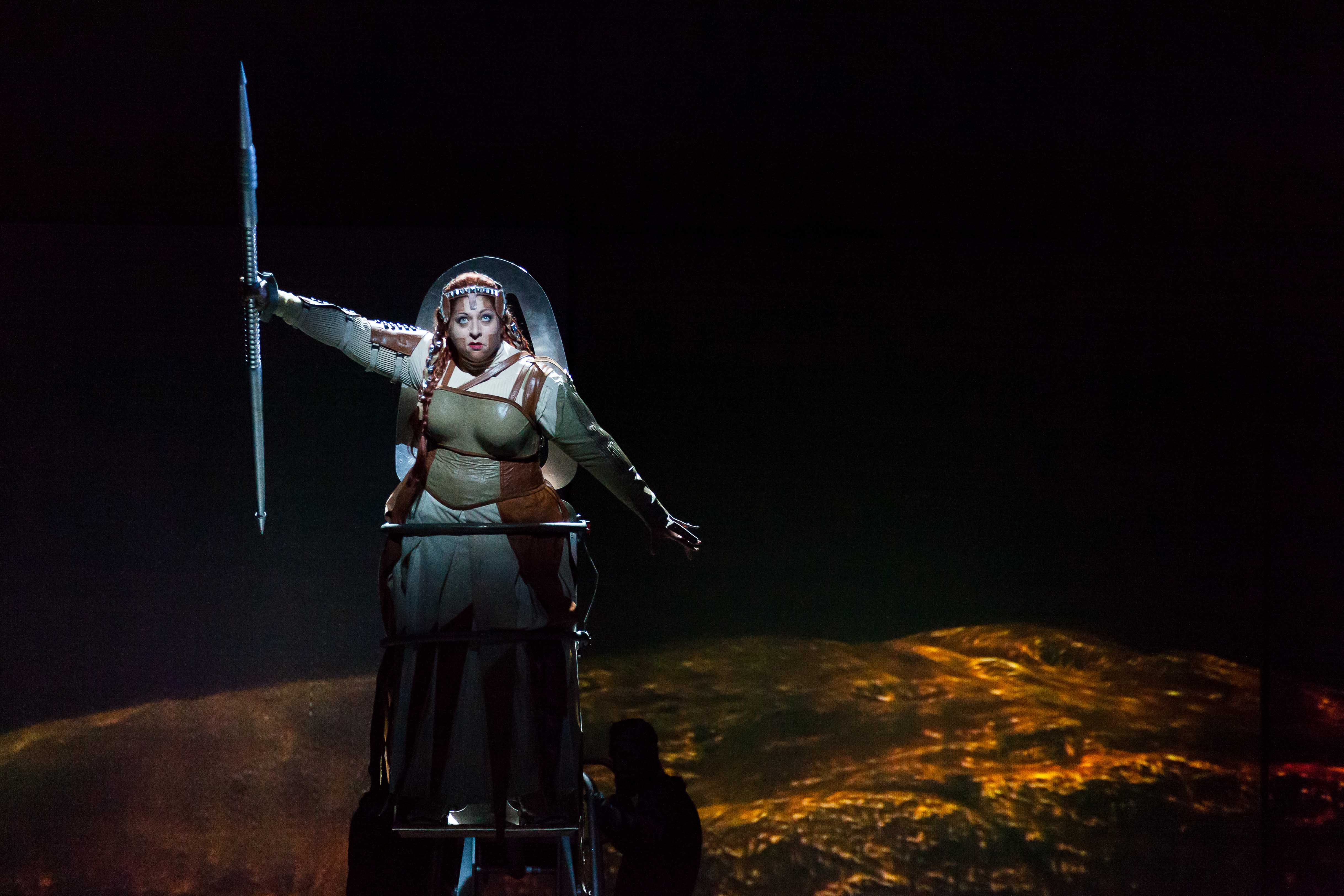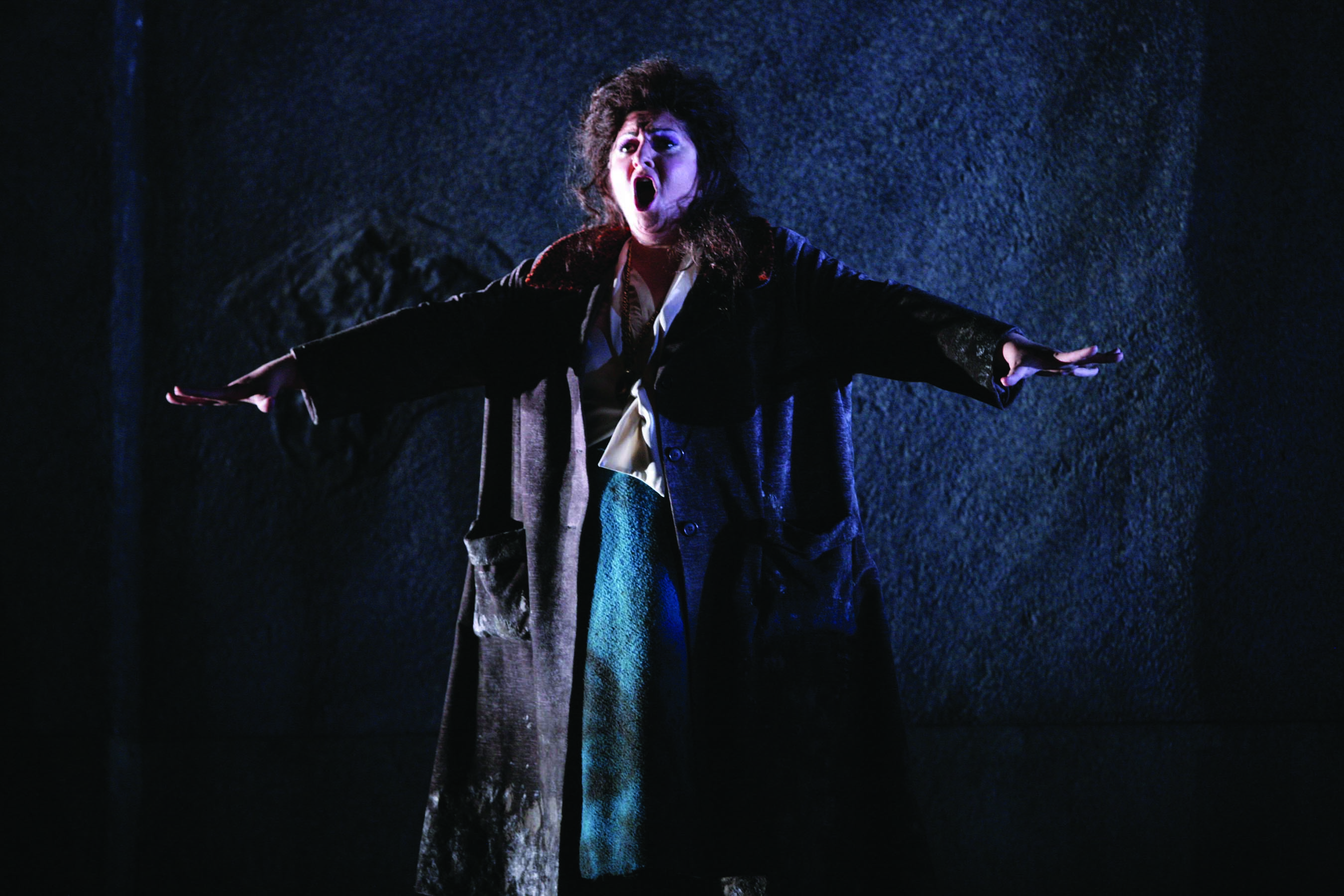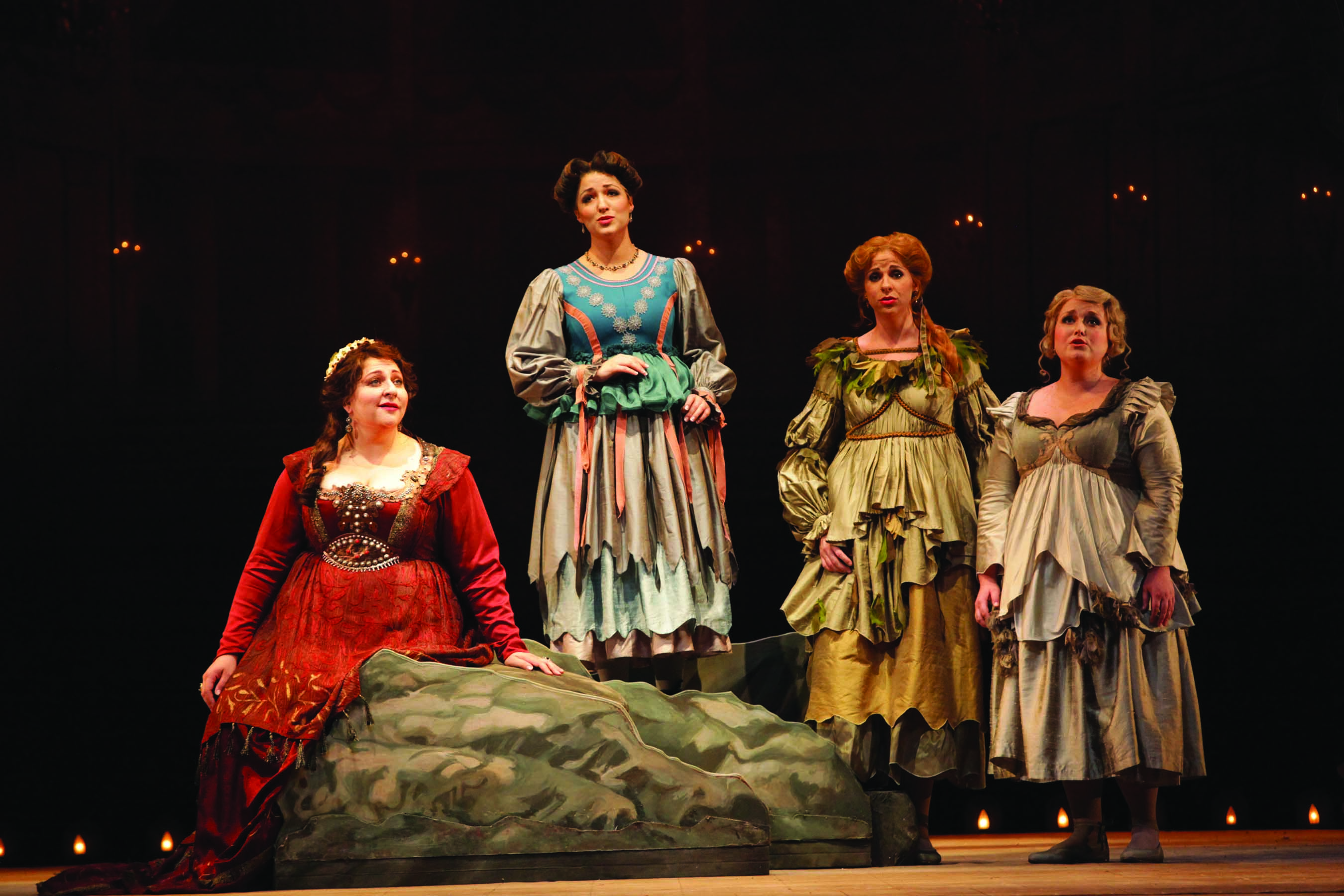Out Of Character
Christine Goerke has had a storied career, beginning with her time as a lyric soprano singing for the Metropolitan Opera in the late ’90s. The 2010s brought a curve ball: a dynamic shift in her voice, and in her career, as she unexpectedly transitioned into a dramatic soprano. At first Goerke feared the change might end her career, but it was really a new beginning. Since then, she’s learned to sing a wide repertoire of dramatic roles, which includes starring as Brünnhilde when HGO produced the operas of Wagner’s Ring (2014-17) and as Elektra at the Resilience Theater (2018) after Hurricane Harvey flooded out the Wortham.
Now Goerke is back in Houston to sing another dramatic soprano role, that of Madame Lidoine in Dialogues of the Carmelites. Recently, while she was in New York to perform the title role in Turandot for the Metropolitan Opera, Goerke made time to speak with Opera Cues about her upcoming HGO performance. And despite her high-flying career as one of the world’s great sopranos, she was charmingly grounded, easy to speak with, and quick to laugh.
I was a clarinet major when I was in college, and I didn’t really know that I could sing. I saw my first opera completely by accident. I was watching television when I was 13 and flipping through the channels, and there was a performance on our public television station. And it turned out to be Francesca da Rimini, of all things, from the Metropolitan Opera. And I was completely fascinated. I’d never seen an opera. I’d never heard an opera. But I just thought it was beautiful. I didn’t actually see my first live opera until about eight years later. I had already started to study at that point, and I found out I could sing completely by accident when I had to take a sight-singing test for my instrumental major.

It’s so funny, because it’s the way everything goes in our lives, you know? Something means something very big to us when we’re 20, and then, when we’re 30, it means something different to us, and when we’re 40, it means something different to us. The last time that I sang this role, I was not yet a mother. And I could understand on an incredibly basic level how important it is to take care of others, and to be responsible for more than one person, and to be a figure of authority, and to show people the right way. And now that I have children, it is a totally different animal. And I am equal parts excited and terrified to jump back into this role with that maternal knowledge, because it brings with it a huge amount of emotion. So it’s going to be difficult to sort of walk the line between emotions and actually singing. I’m very curious to see how this will go. I know that it will mean a great deal to me to walk back in with the life experience that I’ve had now.

Yes, I did. I have to say, to me, this role has been sort of the gift that has kept giving to me. I am fascinated by the opera. I’m fascinated by the character. And doing Elektra at HGO, it was after the hurricane. It was after we were thrown from the theater, and the theater was undergoing incredible renovations, and we were in the convention center. And it was a very difficult experience because we were not in the space that we understood. It was an incredible experience because the audience was so close to us that we were able to share something that we would never have been able to share with that piece. And I will never forget being able to have that experience with the Houston audiences.So for me, that particular performance stands out more than any of the others.
I’m so excited that Patrick Summers is conducting the opera. Patrick and I have known each other since I was 25. We met when I was at Wolf Trap for the first time, and he was conducting Julius Caesar, and I was singing the role of Nireno, which is a eunuch. So that was fun. We’ve known each other a long time, and I’m overjoyed to still be making music with him.

